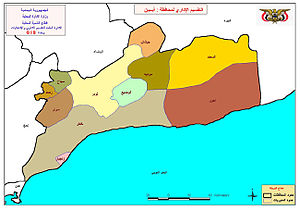
Al-Qaeda stroke again this Sunday when it kidnapped Brig. Khaled Masood, a military intelligence officer based in Mudiya, a city of the southern province of Abyan.
Local officials confirmed on Sunday Brig. Massod was targeted by the terror group while he was still at his residence.
"The al-Qaeda suspects who were armed with assault rifles raided the officer's house and took him to unknown location," a government source said.
Security officers have now set out to track down the terror militants to free their colleague.
Confrontations in Abyan in between the government and al-Qaeda militants have intensified over the past weeks with reports of attacks on al-Qafr and Maraksha on Friday and Saturday against pro-government militias.
Restive Abyan continues to pose the state a serious challenge with Islamic militants successfully managing to fall back on their positions, weaken but never completely beaten.
Even the use of tribal militias loyal to the central government did not drive away terrorists from the region.
With President Abdo Rabbo Mansour Hadi determined to militarily run down al-Qaeda militants with the U.S. military support, security analysts advance an alternative approach could prove better suited.
Bruno S. Frey, Simon Luechinger from the Institute for Empirical Research in Economics, University of Zurich suggests an alternative counter-terrorism strategy in which "terrorist acts may be diminished by reducing the expected benefits of terrorist acts to the terrorists instead of raising the costs, through decentralization."
"We have made the case [Decentralization as a disincentive for terror, European Journal of Political Economy] that strengthening decentralized decision-making may provide an effective disincentive against terrorist attacks. Political economy predicts, however, that a deterrence policy based on increasing the MC of terrorists will tend to be favored by governments, because it visibly demonstrates politicians’ determination to fight terrorism.
In contrast, seeing and conserving the value of decentralization has more the character of a public good whose maintenance is not directly attributed to the government in power. The
disincentive for terror increases the importance of safeguarding political and economic decentralization at the constitutional level."